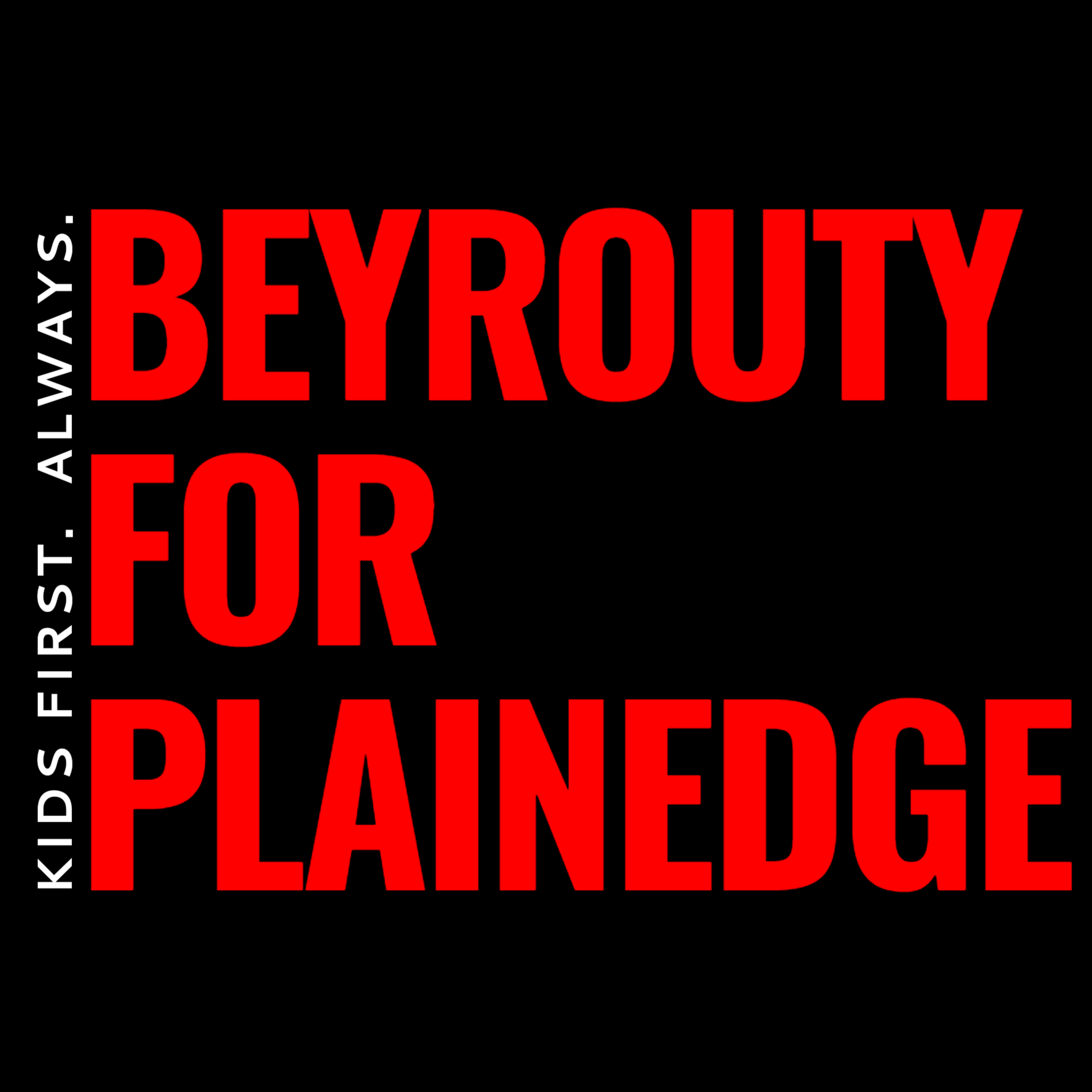“The amount of money we spend on education is important, but not nearly as important as how the money is spent.”

Joe’s Accomplishments Without Being a BOE Trustee
Mitigation of Accessibility of Pornography on Chromebooks
- Joe was apprised of a situation where 5th grade students at John H. West Elementary were able to access pornography on Plainedge issued Chromebooks
- Joe raised the concern of porn being easily accessible on school device’s at several BOE meetings without receiving the appropriate concern or consideration he would expect
- Frustrated by the lack of seriousness and response by the BOE and school administration, Joe tested the ability to access porn on Plainedge Chromebooks using his seven year old’s device
- On Friday, April 8, 2022, Joe emailed the district his findings with concrete proof that he was able to easily access porn. A few hours later he received a response that they would investigate his findings on Monday.
- At the Tuesday, April 12, 2022 BOE meeting the launch of the GoGuardian PILOT program was announced
Joe’s relentless pursuit of the truth and advocacy on behalf of our children forced Plainedge to arrive to the right answer to install a tool that will help keep our kids safer from inappropriate materials that they may access on the internet
Plainedge Middle School Curriculum Guide
- Joe’s eldest child was set to enter the 8th grade for the 2022-2023 school year
- He was made aware that most students in 8th grade would take Algebra I and Earth Science, which are considered 9th grade courses because they are required to take the NYS Regents Exam. Since these are Regents-level courses, these grades would be reported on children’s transcripts when they apply to college.
- Joe raised his concerns about the lack of transparency to the BOE and was dismissed as being “misinformed”. Joe countered that Plainedge is keeping parents “uninformed” and should put together an information packet for all 8th grade parents.
- Joe continually raised his concerns that withholding this critical information from parents was harmful and that they should put together an information packet
- At a BOE meeting, Dr. Edward Salina informed Joe that they would be sending out a curriculum guide
As a result of Joe’s relentless determination to make sure that parents were informed of the structure of the curriculum and the effect of certain coursework with respect to college admission, the administration finally put together the curriculum guide to share with parents of middle schoolers
Joe’s Election Platform
Budget Transparency
Special Education, Universal Pre-K, and Other Programs
Reduce Technology Push on Children
Revisit 8th Grade Curriculum
Late Buses
BOE Meeting Materials
Develop Steering Committees
Budget Transparency
The BOE holds meetings during the first few months of a new year to discuss and develop the revenue and expenditure budgets. When taxpayers vote on the budget in May, there are proposals to sweep excess monies from the general fund to restricted reserve accounts.
Plainedge overestimates budgeted expenditures by a magnitude $7.5mm to $11mm, or 7% to 10%, respectively. With a tax base of roughly 6,500 households this translates to each household overpaying an average $1,100 to $1,500 annually. Therefore, over a 5-year span the average household has overpaid school taxes to the tune of $5,500 to $9,000. Additionally, the findings from the January 2018 NYS Comptroller’s Office audit noted a similarly troublesome budgeting pattern from 2013 through 2016. One can easily understand that Plainedge taxpayers have been unduly overburdened for many years!
After examining the last five years of Plainedge’s audited financials, it’s clear that this school district habitually and artificially inflates its expenditures for five line items which are:
- Teaching – regular school ($1.3mm – $2.5mm)
- Programs for students with disabilities ($800k – $1.9mm)
- Pupil services ($300k – $700k)
- Pupil transportation ($500k – $900k)
- Employee Benefits ($2.0mm – $3.1mm)
Visibility into how the district is budgeting and then utilizing the money is critically important. Joe believes that greater insight and visibility into the mechanics of the process and the flow of funds requires greater oversight and explanations to this hardworking community.
Special Education, Universal Pre-K, and Other Programs
Special Education holds a special place in Joe’s heart because one of his children had begun early intervention at two years old. Joe’s child began his Plainedge journey in a self-contained classroom at Schwarting Elementary for two years and was moved into inclusion for three years. His child was was recently declassified thanks in large part to the services offered at Plainedge. Joe appreciates that this school district can have a huge impact on the quality and trajectory of a child’s life through specialized education services from toddler through post-adolescence.
Those charged with making the decisions on the allocation of finite monetary resources must be judicious about every dollar budgeted and spent. Accordingly, in conjunction with revisiting every dollar spent on the expenditure-side of the ledger, we must re-examine the allocation of funds to special education. Excess funds allocated to the expense line titled “Program for students with disabilities” are then swept into restricted reserve accounts for capital improvement projects.
Should we be using this budget line as a way to fund our capital improvement projects or should we actually use this money to take a good program and make it great? Is Plainedge saying that they can’t find ways to provide our special needs kids with more services and tools to flourish in an ever-changing world?
Our desire to pass budgets that appropriately fund this line item reflects our values as a community, which are to treat and provide our special needs children with the best resources to learn and live a fulfilling life. Accordingly, we must make sure that the BOE is held to account and is fully utilizing the resources we agreed to allocate to this budget line.
In addition, as a result of the excess funds available due to current anomalous budgeting practices, we should revisit the districts ability to provide Universal Pre-K and Summer Enrichment to every child in Plainedge. It’s unfair that people are shut out of programs by a lottery system when the funding is available. (See my update regarding UPK as of March 8th at https://beyroutyforplainedge.com/hooray-for-universal-pre-k/)
Reduce Technology Push on Children
There has been a big push to incorporate more technology in schools under a notion that it was to only supplement curricula already taught in the classroom. However, is it possible that this tool that was meant to be a supplement to help reinforce classroom concepts has become the primary method that our children learn and take tests?
Joe proposes a reduction in the amount of technology being pushed in the classroom and a reversion to more traditional methods of teaching, which would help kids develop critical thinking and problem-solving skills. Today’s computing tools are very intuitive and simple to use, but an overdependence on them will dull a child’s ability to think through certain issues.
Accordingly, when teaching our children to use technology the focus should be on learning real-world skills such as how to properly typewrite, draft letters and emails, use programs/applications that are utilized in the real-world (e.g., Excel, Word, Powerpoint, Access, etc.), and learn the proper way to find reliable research materials.
Revisit 8th Grade Curriculum
Unbeknownst to many parents and students, in 8th grade their children will take classes that are reflected on their high school transcript. Traditionally, and in most high schools across NYS, the classes listed below are generally taken by students in the 9th grade. Students that would normally take 9th grade level coursework in 8th grade are generally deemed to be able to withstand the rigors of an Honors-level curriculum.
- Spanish I or Italian I
- Algebra I
- Earth Science
- Studio in Art (elective)
Some questions to ask yourself if you are the parents of an elementary or middle school child are:
- What if your child is not ready for accelerated coursework and is struggling? Will you personally have the time to help your child? Will you have the money to pay for tutors? If you are unable to personally help your child or pay for tutors, what happens then? How will you and your child deal with the emotional stress of your child working hard to do well, but unfortunately comes up short on quizzes/exams?
- What if your child is one of the approximately 15 children placed in a regular Math 8 and Science 8 classroom? How will their peers view or treat them?
- What if your child is truly an honors student and should be working at an accelerated pace, how does having regular ed students in the same classroom affect their experience?
Late Buses
Joe supports bringing back late buses, but it should be done with input from the district’s parents.
The last iteration of the late bus experiment was implemented without input from parents and did not align well with the after-school activity schedules; it was destined to fail.
More thoughtful consideration and input should be given when this process is re-launched.
How hard is it to send a survey to every middle and high school household to collect information before formulating a late bus program? Surveys have been sent out for a variety of requests in the past, so that in-house capability exists.
BOE Meeting Materials
- All schedules and exhibits included in the BOE’s agenda should be readily available to the public without having to request it from central administration such as Fiscal Reports, Warrants & Treasurer’s Reports, bids and contracts awarded, policies, and other items discussed that reference source materials.
- Video and audio of all meetings should be readily available on the BOE’s webpage within a reasonable time frame (72 hours) after the meeting was held.
- All meetings (Regular, Public Works and Audit Committee) that are open to the public should be announced via email and text notification more than 24 hours in advance with an appropriate WebEx link for the public to easily join.
A quick review of the BOE websites for nearby districts reveals that the Plainedge BOE can’t in good faith be considered transparent. I encourage you to visit the BOE webpages of some neighboring school districts (e.g. Massapequa, Wantagh, Levittown, Plainview-Old Bethpage, Syosset) and decide for yourself.
Develop Steering Committees
Parents should be able to provide input and recommendations on the issues that directly impact children in Plainedge to the BOE. Accordingly, Joe supports exploring steering committees, which would be comprised of volunteer parents with related and relevant experience (e.g., teachers, therapists, and other professionals) that would provide recommendations to the BOE to help them evaluate a host of items, such as:
- Providing input on administrators and teachers hired, terminated, and tenured. With respect to this process, all recommendations by a personnel panel would go before the BOE for final decision-making as part of their normal personnel oversight process.
- Having input and oversight with respect to the school curriculum and items purchased for use in classrooms. Having parents that are employed in other districts can help us to investigate and deploy best-practices, as well as avoid costly mistakes (e.g., Teachers College reading program has been panned as not being as strong as some other programs, avoid contentious issues such the types of books we use for reading and instruction, etc.).
- Having input with respect to the school calendar. Many parents have a strong preference to resume school after Labor Day and would like additional consideration around the timing of half-days, possibly adding holidays that are important to people of differing faiths, etc.
